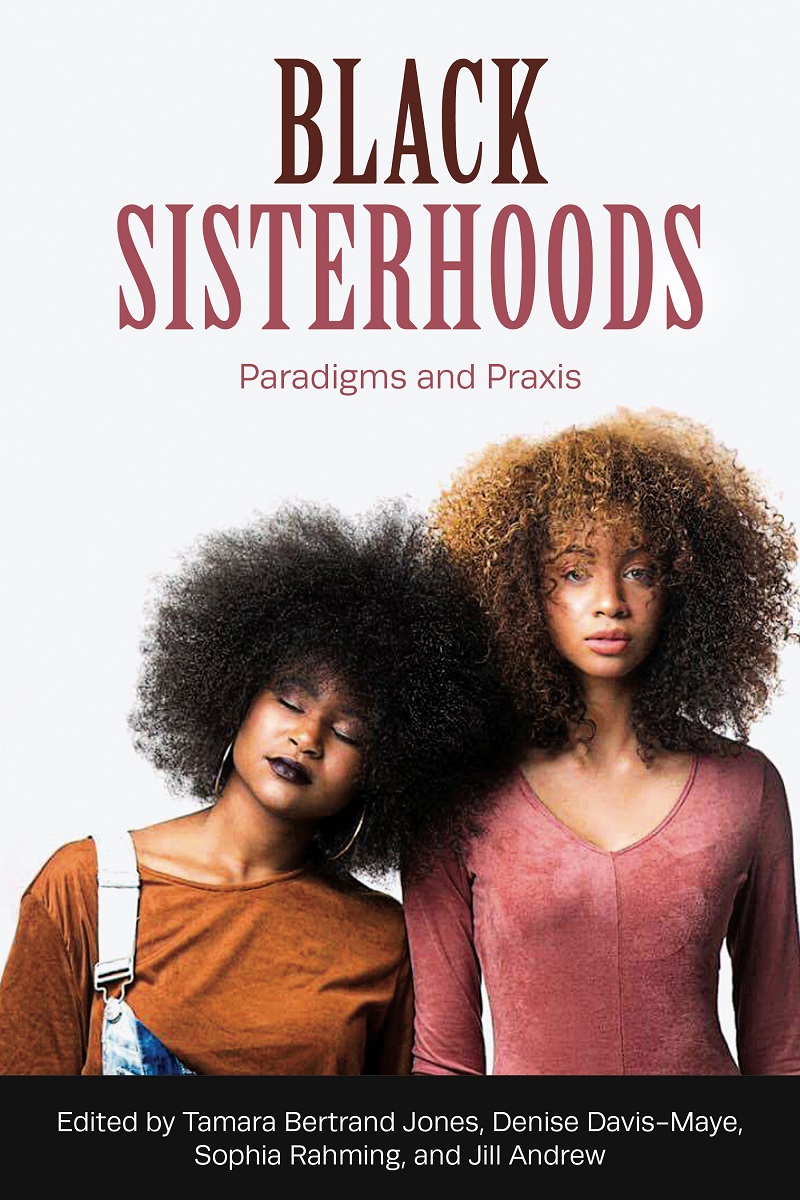
Price: $39.95
Page Count: 288
Publication Date: April 2022
ISBN: 978-1-77258-378-6
As a collection, this volume adds much dimension to Black women’s studies. This blend of theory, discipline, lived experience, and progressive methodology is interesting in structure and content. The connection of academic space to community space to digital space—creating sisterhood—brings the reader on a journey through many areas of connection and creation of meaning—from support in intimate spaces to resistance in oppressive public spaces.
- Dr. Stephanie Y. Evans, Georgia State University
This refreshing and insightful collection of essays offers a rich theorizing of Black women’s friendships, experiences, and lives both historically and in the contemporary period. Understanding sisterhood as a theory or paradigm of Black women’s shared practices of living in and deciphering the world, the collection narrates Black women’s journeys through family life, educational institutions and their communities. For those looking to build their own support networks in communities, educational institutions and other organizations, this is a must read.
- ANDREA A. DAVIS is an associate professor in the Department of Humanities and special advisor on anti-Black racism strategies in the Faculty of Liberal Arts & Professional Studies at York University, Toronto.
Black Women Defining, Enacting, and Shifting Sisterhood: An Introduction
Denise Davis-Maye, Tamara Bertrand Jones, Sophia Rahming, and Jill Andrew
Section One- Sisterhood as Paradigm
Becoming Sisters, Becoming Free: Black Feminism, Sisterhood, and Social Justice
Jade DaCosta
Blood and Water: Black Motherhood, Friendship, Survival and the Power of Showing Up
Haile Eshe Cole
Unapologetic Responses to Unapologetic Exclusions: Advancing Communication within Sistah Spaces as a Vehicle of Resistance for Black Women living during the Post-Racial Era
Raven Maragh-Lloyd and Shardé M. Davis
Service, Leadership and Sisterhood: An Overview of Black Sororities in Social Science Research
Marcia Hernandez
Sisterhood Unexpected: “I Met My Best Friend in LEAP!” and Other Narratives by LEAP for Girls Alumnae New York City, 2006-2016
Sara C. Flowers, Danielle Krushnic, Deborah Levine, and Sara Birnel Henderson
For the Culture: The Utilization of an African-Centered Paradigm as A Pipeline To Ensuring Success For Black Women Scholars In Academia
Yarneccia D. Dyson
Black Girls Don't: Correcting the Record of What Black Girls Can and Cannot Do
Krystal Lee and Daphne R. Wells
Section Two- Sisterhood as Peer Support
Sistership: Toward a Praxis of Communal Scholarship amongst Black Women Graduate Students
ArCasia James-Gallaway, Autumn Griffin, and Melanie Marshall
Let's “SLAY” Together: Building Sisterhood, Scholarly Identity, and Solidarity Among Black Female Doctoral Students
Gloria L. Howell, Christina Wright Fields, Francesca A. Williamson, and Katrina M. Overby
#BlackGirlMagic: A Coalition of Sisterhood
Cherell M. Johnson, Colette McLemore Dixon, and LaTrina D. Parker Hall
Sister Circle: Guarding Sisterhood in Higher Education
Kalisha V. Turner, MaKesha Harris Lee, and Arielle Weaver
Sankofa Sisters: Returning to Sisterhood to Secure Our Progress
Angel Miles Nash, Tara Nkrumah, Rhonda Gillian Ottley, Kimberly Mason Peeples, and Devona F. Pierre
Black Sisterhood Created, Maintained, and Protected at an Anti-Black Institution
Ashley N. Gaskew, Jacqueline M. Forbes, Jamila Lee-Johnson, and Ja’Dell Davis
Section Three- Digital Sisterhood
In a Racist Kind of World, I’m Glad I’ve Got My Girls: Black Feminist Digital Sisterhoods Through Social Media
Jelisa Clark, Lisa Covington, and Veronica A. Newton
She’s My Sister, but We’ve Never Met Offline: Exploring the Relationship of Digital Black Sisterhood with PhD Students in Special Groups on Facebook
Erin L. Berry-McCrea and Briana Barner
Digital Sister Circles: Collectivity and Comradery in Natural Hair Online Communities
Joseanne Cudjoe
Sister Circles via Social Media
Adrianne Jackson and Leah Hunter
Dr. Tamara Bertrand Jones is an Associate Professor of Higher Education at Florida State University. She uses qualitative methods and critical and feminist theories to examine the education and professional experiences of Black women in academia. She is a founder and past president of Sisters of the Academy Institute, an international organization that promotes collaborative scholarship and networking among Black women in academia.
Dr. Denise Davis Maye is a Professor in the Department of Social Work at Alabama State University. Her research interests include the factors that influence the emotional development of adolescent girls and women of African ancestry. She is a past president of Sisters of the Academy Institute, an international organization that promotes collaborative scholarship and networking among Black women in academia.
Dr. Sophia Rahming is an Associate Director in the Center for the Advancement of Teaching at Florida State University (FSU). She earned her PhD at FSU researching the experiences of Afro-Caribbean women in STEM in the United States. Sophia works to increase opportunities that lead to science for all in STEM.
Dr. Jill Andrew (she/her) is a child and youth worker, equity human rights educator and a body justice advocate. Her PhD research explores the 'trifecta' of anti-Black racism, sexism and fat hatred experienced by Black women and their accommodation and resistance of dominate body ideals through fashion and dress, activism, self-valuation and social interactions. Jill is co-founder of Body Confidence Canada and is a politician in Ontario, Canada.


